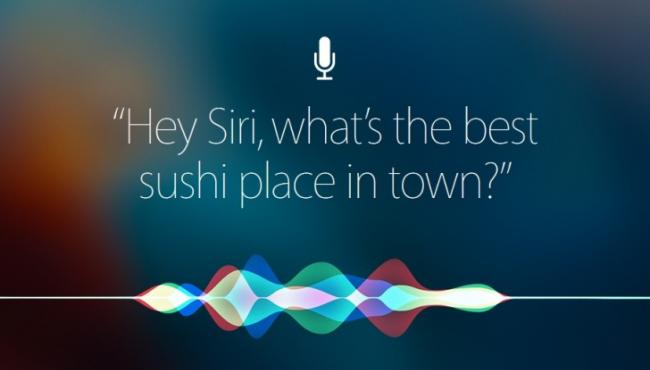Apple is working on replacing Siri with the kind of A.I. system you really want on your Mac
Digital assistants have come a long way, but as far as they have come, they are all still plagued by a huge problem: the smarter they become, the more frustratingly stupid they get.
In all fairness, it’s not their fault. Digital assistants are not people; they are merely designed to provide a reasonable digital likeness to a human, and to accept commands in a way that feels as natural as it would feel talking to another human being.

Sadly, digital assistants are still bound by the rules set by the technology of their time, which is progressing, but at a slower pace than what consumers need. Siri, Google and Cortana, among the most popular ones, will perform tasks by accepting commands within a sentence, however these sentences must be pronounced in the same way all the times.
For instance, if we were to ask Google “navigate home” or “take me home”, Google will automatically respond by opening Maps, and plotting a course for the location which has been set as Home.
Conversely, if we were to tell Google or Siri “I want to go home” or “I would like to go home please”, Google would parse the command literally as an expression of a feeling, rather than as a request, and simply show either search results, or a plotted course on Maps, without initiating any navigation.
From a logical point of view of a machine, this makes perfect sense, but humans are not exactly logical. We rely on clues like the tone of our voice, or facial expression to tell others how we feel. A computer program doesn’t get visual clues...yet. Nor does it get sarcasm or the ability to get a sense of urgency in the tone of one’s voice.
One company, however, is working on that at a pace that is reportedly about to blow Google, Siri and Cortana, out of the water.
VocalIQ was purchased by Apple, last year, and is the maker of a digital assistant software touted as more capable than any other on the market, including Google and Amazon’s Alexa, to a point in which Apple has deemed appropriate to purchase the company before they even had a chance to finish their first official smartphone app.
Ever since the original acquisition, Apple has kept most of VocalIQ’s staff, putting it to work on the integration of VocalIQ learning abilities into Siri.
What’s special about VicalIQ is it’s learning algorithm allows it to return more accurate results with a much smaller training database than Siri. To put things in perspective, VocalIQ was able to reach a level of accuracy higher than Siri, after being trained with 10,000 dialogues. Siri processes and learns from over one billion queries per week.
The kind of Siri you want on your Mac
Siri is coming to Mac OS X, but before it does, Apple will have to work hard to make sure it will be a useful component of the Mac OS X ecosystem, which is why it is imperative for Siri to be able to understand complex queries, often containing multiple commands, such as “Create a new Excel spreadsheet, title it Projections. Also read me my last three unread emails from John Duncan”, If we were to ask this to Siri, Google or Cortana, we’d be presented with search results for Microsoft Excel, at best.
Using a virtual assistant on an iPhone is different than on the desktop, because a desktop environment, like a MacBook or an iMac, implies the ability to multitask, which is the big problem with Cortana, at the moment, as it can only accept and understand one command at a time, and it has to be as clear as it can be, or the whole thing will be handed off to Microsoft Edge.
There is a reasonable expectation of VocalIQ being successfully integrated into Siri by the time Siri ships with the next Mac OS X update, however Apple is never the one to rush, and being that VocalIQ represents such an incredible advantage over other virtual assistants, it’s unlikely that Apple will release it ahead of time.